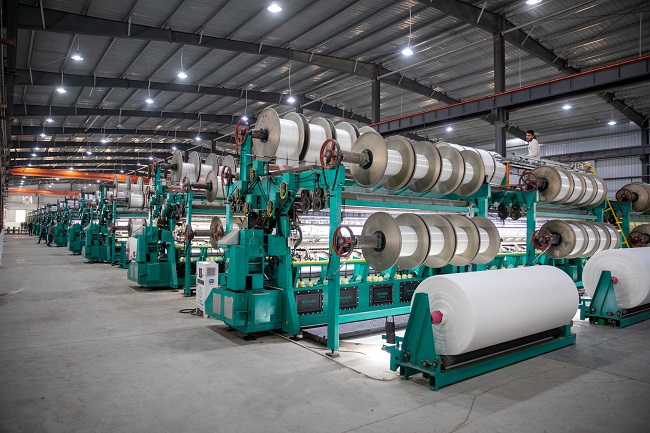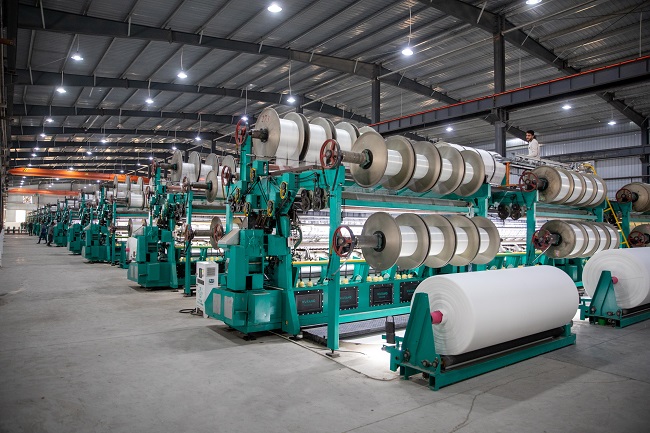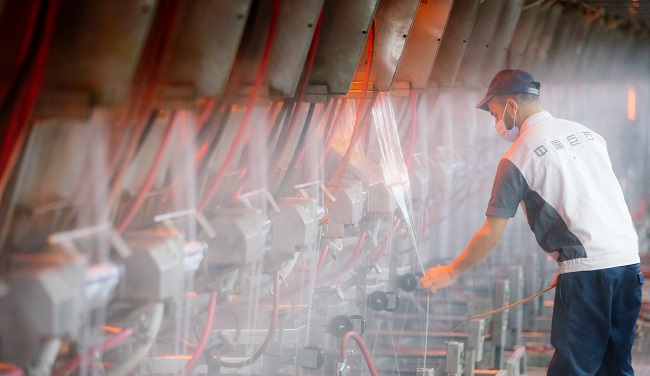Egypt’s SCZONE and Chinese investment: a solid economic bond in the MENA region

“Midea Egypt” factory for electrical appliances
The Suez Canal Economic Zone (SCZONE) is a promising hub that stands out from Egypt’s vision to utilize the 455 million square meters of land along the banks of the Suez Canal, serving the integration targets through 4 industrial zones and 6 seaports overlooking the Mediterranean Sea and the Red Sea.
SCZONE connects various global trade routes in the shortest possible distance and offers a huge area that accommodates various sectors of industries and services by providing a favorable business environment. Recognizing the urgent need for the transition towards sustainable practices, SCZONE takes a pioneering role by leveraging the ample renewable energy resources in Egypt and dedicating a 30- million square meter production hub for green hydrogen and green ammonia.
Chinese investments are crucial in the SCZONE industrial map, as TEDA-Egypt is one of the most important industrial developers on an area of 7.3 million square meters. The zone has already attracted and settled diversified industrial enterprises, including Jushi Egypt - a fiberglass manufacturer that ranks among top four globally in fiber glass production. It was established in 2012, with a total area of 146,000 square meters in the integrated industrial zone in Ain Sokhna. At present, the company’s total investment has hit $920 million, and its production capacity is 450,000 tons annually. Additionally, the TEDA also has the “Midea Egypt” factory for the manufacturing of home appliances (washing machines), with a total investment cost of $25 million, targeting total production capacity of 1.5 million electrical appliances annually.
Furthermore, the Fan Yang Factory, with an area of 109,083 square meters, produces textiles with a production capacity of 30,000 tons per year, total investments of $30 million, and total revenue of $60 million per year.

Fan Yang for textiles
Another success story of Chinese companies is "Heng Tong Egypt" for fiber optics, which was launched in April 2022. The company produces optical fiber cables, and provides communications engineering services and electrical engineering. Its total investment has surpassed $20 million, with an allocated area of 5,904 square meters for the first stage and another 20,990 square meters for future expansion. Its production capacity has hit 2 million FKM annually.
The TEDA has more than 141 companies focused in industry, services and commercial and admin areas with total investments exceeding $2.5 billion, and provides more than 10,000 jobs.
Furthermore, during the last visit of the SCZONE’s delegation in May 2023, Mr. Waleid Gamal El-Dien, chairman of SCZONE, witnessed the signing of agreements for new projects to be established within TEDA-Egypt in SCZONE’s Sokhna Integrated Industrial Zone. The TEDA signed an agreement with HIDIER Group, with the first project being to establish a power supply station with an investment of about $265 million. The value of the first phase of building a substation with a capacity of 200 megawatts/220 kV is $38 million. A second agreement was signed with the same company for a project to produce modern materials with a capacity of 200,000 tons of advanced carburetors using coke as a raw material. The total investment in this project is about $100 million, and the annual production capacity for the first phase is 50,000 tons, with an investment of about $30 million.
In the same context, an agreement was signed between the industrial developer TEDA-Egypt and the Shandong Tianyi Company, who operates in the field of petrochemicals and bromine production, to establish a project on an area of 270,000 square meters with a total investment of $110 million, a production capacity of 140,000 tons of bromine, and an expected return of $600 million. The company is also setting up another project for the production of caustic soda at an investment cost of $200 million on an area of 300,000 square meters, to produce 500,000 tons of raw salt, 300,000 tons of soda ash, 270,000 tons of chlorine, and 7.5 thousand tons of hydrogen annually. The annual revenue is expected to reach $160 million. The TEDA has also attracted a subsidiary of the Golden Spring Group to establish a project for the textile industry on an area of 66,000 square meters with total investments of $12 million.

Jushi Egypt for fiberglass
Furthermore, a famous Chinese presence in SCZONE maritime activities comes through the Hutchison-Cosco and CMA alliance to operate a container terminal in SCZONE’s Sokhna Port, with a total investment $600 million, a length of 2,600 meters, a total area of 1.6 million square meters, and a total capacity of 3.5 million TEU annually.
While the Belt and Road Initiative (BRI) proposed by China in 2013, aims to foster economic cooperation and enhance global connectivity on different levels, SCZONE was established in 2015 by a presidential decree for facilitating global maritime trade and attracting diversified industries within one of the most unique and strategic locations globally. However, the BRI and SCZONE are not only similar in establishment timings, goals, and plans, but they also have conclusive wins in their practical implementation, which is the reason that SCZONE is participating this year in the 10th anniversary of the BRI, as this year is time to reflect on what has been achieved though this initiative and attract more investment to the SCZONE.








